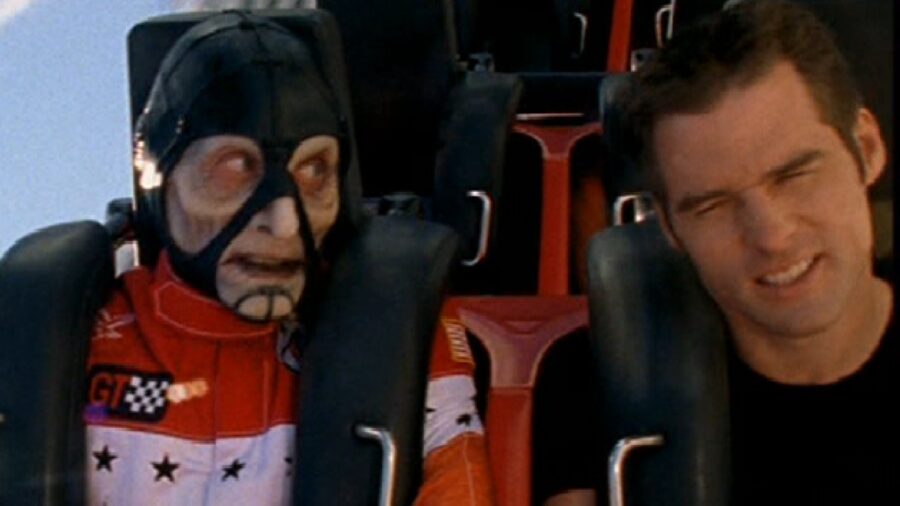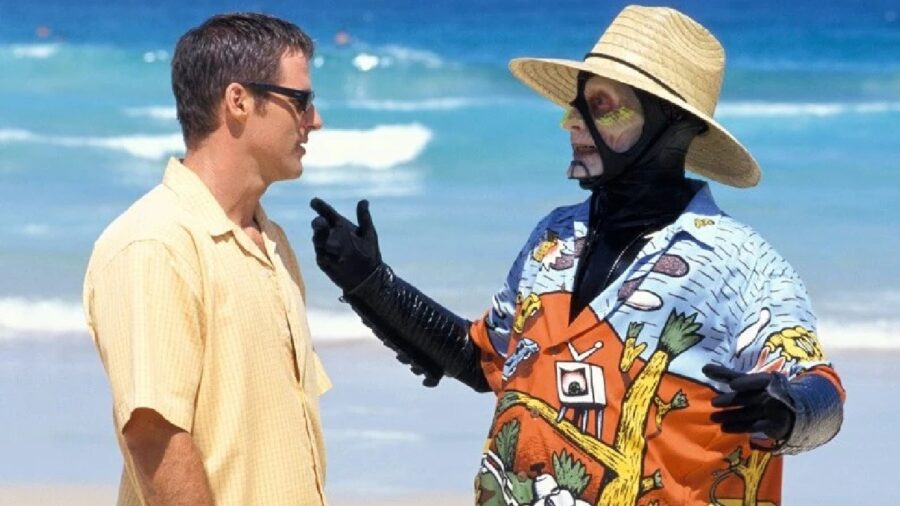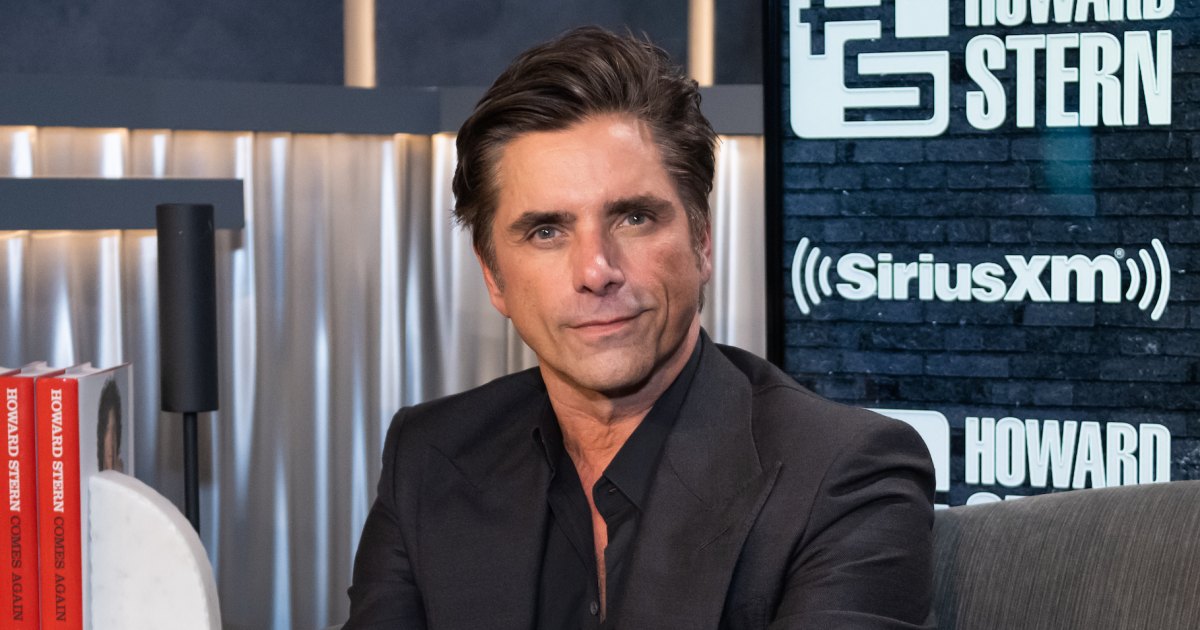By Jonathan Klotz
| Published

Farscape may be known as the “show with the puppets,” but it features some of the best writing of any sci-fi series, between the organic growth of John Crichton and Aeryn Black’s relationship to the ability to turn even the most bizarre storylines into cerebral storytelling. This is the only reason that Farscape did so well with Harvey, a version of the villainous Scorpius that exists only in the head of Crichton, a gimmick character that became a fan favorite despite the obvious limitations.
John Crichton’s Invisible Frenemy

First appearing in “Crackers Don’t Matter,” the fourth episode of Farscape Season 2, the Scorpius hallucination is assumed to be part of T’raltixx’s mental manipulations, but then Scorpius would appear again and again in moments of great stress. The hallucination even started to urge Crichton to follow certain actions, notably to not kill the real Scorpius, before it finally revealed itself inside the human’s mind. The hallucination was the result of a neural chip implanted by Scorpius while torturing Crichton; ironically, the Scorpius clone revealed the truth during another torture session from another alien whom it helped Crichton defeat.
Crichton dubbed the Scorpius hallucination living in his head Harvey, named after the James Stewart classic about the invisible rabbit. From then on, Harvey would appear multiple times in each season, sometimes as a visible hallucination that none of the other Farscape characters could see since he didn’t actually exist, and other times, within Crichton’s mindscape, where he offered helpful advice like Jiminy Cricket in skintight leather.
A Genius Way To Keep Scorpius Involved

The writers of Farscape made the choice to have Scorpius’ neural implant be a version of Scorpius as a way to keep the villain involved without having his evil plans fail on a regular basis. This way, they could keep Wayne Pygram involved, explore different parts of Crichton as reflected by Scorpius, and maintain a sense of danger around the real villain. Harvey might have started as a mental clone of Scorpius, but he ended up becoming his own character.
Harvey would appear to Crichton in Hawaiian shirts and at a moment that showcased Pygram’s talent, even playing the drums like Ringo Starr. These off-beat appearances made both fans and Crichton start to consider Harvey as more of an ally than an enemy, and in truth, he was, but only in the same way that the real Scorpius was: to further his own goals. In fact, by the time Farscape came to an end, Harvey managed to fulfill his goals and the reason he was programmed in the first place, but in keeping with the spirit of the series, it wasn’t quite how he intended back in Season 2.
Farscape is the only sci-fi series I can think of that took what could have been a one-off gimmick for an episode and managed to turn Harvey into an enduring part of the show’s legacy. Stargate SG-1 turned a gimmick episode into one of the show’s best, but they never included Apophis showing up in a hazmat suit or debating how Easter is celebrated. Farscape managed to do a lot with very little, thanks to the sharp writing and talented cast, with Wayne Pygram’s unhinged Harvey as the finest example of what a little creativity and a willingness to throw out the rulebook will get you.




